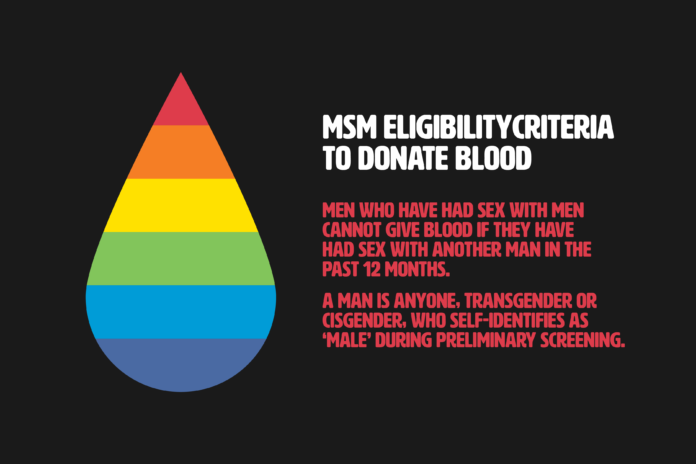Restrictions specifically target men who have had sex with men
Chancellor Gary May recently released a statement to the community calling attention to federal restrictions that gay men face when donating blood. May published the letter in response to UC Davis’ regular blood drive that was held on April 16-18 on the Quad.
May’s letter addresses existing federal regulations that implement restrictions for men who have sex with men (MSM) when giving blood. Previously, the U.S. Federal Drug Administration enforced a lifetime deferral for MSM.
In 2015 the FDA revised its regulations to limit deferment for MSM to “12 months from the most recent sexual contact,” according to the Red Cross’ website.
With regular blood donations held on campus as well as around the nation, May commented on his decision to go forward with this statement.
“I wanted to send a strong message that UC Davis is an inclusive community,” May said via email. “Some may not know about limitations that are put on some in our community, such as in this instance, and I wanted people to know that I see and hear them.”
Restrictions against MSM began in 1983 during the AIDS epidemic in an attempt to prevent the spread of the disease. Originally, the ban applied to MSM, women who have sex with women (WSW) and transgender individuals considered MSM.
Today, the deferral only applies to MSM. There is no deferral for WSW or transgender women, assigned male at birth, who have sex with men. According to the Red Cross’ website, MSM in monogamous relationships must still observe the 12 month deferment.
Many believe these restrictions are outdated and discriminatory, including May.
“I also want to acknowledge those in our community who would participate, were they not barred by federal restrictions on blood donations by men who have had sex with men,” May said in his statement. “UC Davis — and I personally — stand strongly against all forms of discrimination on the basis of gender or sexual orientation. By using those traits as a proxy for risk, the FDA’s policy unnecessarily prevents some of our fellow students, staff and faculty from joining in this important and generous community effort.”
While all donated blood goes through a process of intense screening, historically there have been cases of blood containing viruses getting through screening procedures. In an attempt to decrease the likelihood of this occurring, because MSM are more likely to have HIV than the general population, the FDA previously deferred any MSM from giving blood.
Today, with tests that can detect HIV within 11 days of infection, many accuse the 12 month deferment period of being outdated and homophobic. Staff at UC Davis’ LGBTQIA+ Resource Center acknowledged the importance of this issue via email, but were unable to provide a comment.
According to an article from the Los Angeles Times, today a patient’s chance of getting HIV from a blood transfusion is 1 in 1.5 million.
Vitalant, formerly Bloodsource, the company that runs UC Davis’ blood drives, is responsible for contributing to “studies that presented the scientific data and testing advances prompting the December 2015 FDA change from a permanent deferral for men who have sex with other men (MSM) to a 12-month deferral since last sexual contact,” according to their website, which May referred to in his letter.
Going forward, more scientists are working to provide evidence-based studies that support shorter deferral periods, including Vitalant.
“The goals of this research are to reduce the deferral period for gay and bisexual men even further — as has been done recently in France and the United Kingdom — and possibly also to develop a more individualized donor risk assessment process — such as is used in Italy and Spain — that ultimately may allow gay and bisexual male donors whose risk for HIV and other blood-transmitted infections has been proven as being acceptably low to donate blood for the general community,” said Chris Gresens, the senior chief medical officer at Vitalant’s North and West Divisions and a clinical professor at UC Davis’ School of Medicine.
Written by: Ally Russell




